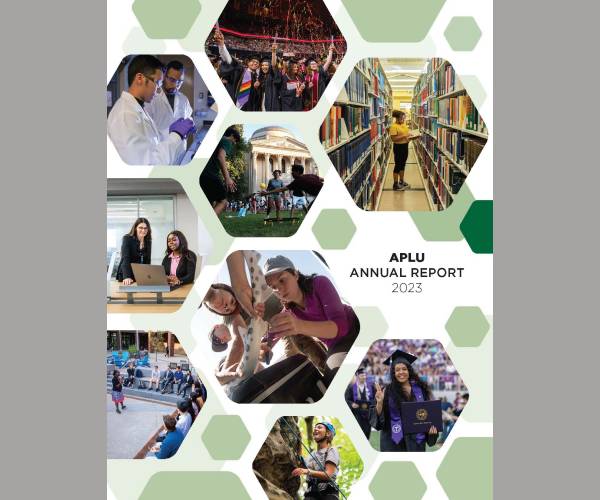Employability Skills in Agriculture & Natural Resources
- In order to redesign curricula and degree programs, administrators of colleges of food, agriculture, and natural resources wanted to consider specific skills and experiences that could be changed to help students meet employer expectations.
- To assist with this challenge, the APLU Academic Programs Section commissioned research on specific employability skills—the nontechnical skills used every day in the workforce to ensure the smooth operation of projects and offices.
- The goal of the research is to provide data-driven insights on employers’ needs that university administrators and faculty could consider when changing or updating academic programs.
- Press Release: APLU Releases Two Reports on Gaps in Employability Skills and Workforce Preparedness Among College Graduates
- Download: From Academia to the Workplace Executive Summary
- Download: From Academia to the Workforce: Critical Growth Areas for Students Today
- Download: From Academia to the Workforce: Navigating Persistence, Ambiguity, Change and Conflict in the Workplace
- Download: Employability Skills and Students Critical Growth Areas. Pat Crawford and Wendy Fink. NACTA Journal. Nov. 2019-Oct 2020. pp 132-141.
- Download: Exploring How Men and Women Prioritize Employability Skills for Communication, Decision Making and Self-Management. Robert Dalton, Pat Crawford, Lydia Weiss and Wendy Fink. NACTA Journal. Dec. 2018, Vol. 62(4), pp 298-307.
- Download: Comparative Analysis of Soft Skills (2011 report)
One of the core missions of public universities is preparing students to enter the workforce. Understanding and meeting the needs of employers and the skills new graduates will take with them into the workplace is vital when developing curricula and degree programs. In order to redesign curricula and degree programs, administrators of colleges of food, agriculture, and natural resources wanted to consider specific skills and experiences that could be changed to help students meet employer expectations.
Led by administrators in colleges of agriculture, the APLU reports examined specific employability skills—the nontechnical skills used every day in the workforce to ensure the smooth operation of projects and offices. More than 11,000 employers, faculty, alumni, and students answered a survey consisting of two parts: 1) stakeholders were asked to rate the importance of 11 specific employability skills, how prepared students were in that skill, and rank what activities outside the classroom most contributed to learning these skills; and 2) answer four open-ended questions around how to better prepare students for navigating ambiguity, change, persistence, and conflict in the workplace.
Over the decades, many organizations and researchers have done research on employability skills, including APLU, the Association of American Colleges and Universities, the National Association of Colleges and Employers, and the Society for Human Resource Management to name a few. What makes this research different is that the focus is on the differences between four stakeholder groups: employers, alumni, faculty, and students. This allows institutions to identify areas where there are disconnects between the groups, so these skills can be explored to improve student outcomes in the workplace.
While the study was primarily focused on stakeholders from colleges of agriculture and natural resources, the skills and insights are not limited to these academic programs. Employers in the survey represented industry beyond traditional agriculture and natural resources and the skills examined are applicable to virtually all fields. To conduct this research, APLU fielded a survey in 2018-2019 through 31 participating universities and partner organizations.
The survey consisted of two parts: 1. stakeholders were asked to rate how important a skill was, rate how prepared students were in that skill, and to rank what activities outside the classroom most contributed to learning these skills as reported in Critical Growth Areas for Students Today; and 2. answer four open-ended questions around how to better prepare students for navigating ambiguity, change, persistence, and conflict in the workplace as reported in Navigating Persistence, Ambiguity, Change and Conflict in the Workplace.




Stay Connected
X (formerly Twitter)
Facebook
YouTube
LinkedIn
RSS